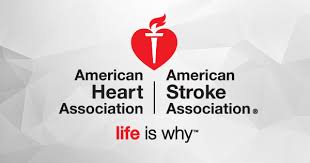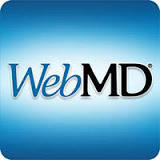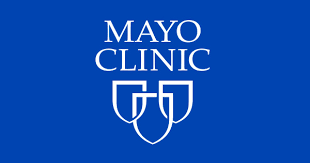best wine for blood pressure

Knowing the facts can help you make smart choicesOne of the best things about educating yourself about high blood pressure (HBP or hypertension) is shattering these myths.Myth: High blood pressure runs in my family. There is nothing I can do to prevent it.High blood pressure can run in families. If your parents or close blood relatives have had high blood pressure, you are more likely to develop it, too. However, lifestyle choices have allowed many people with a family history of high blood pressure to avoid it themselves.Myth: I don’t use table salt, so I’m in control of my sodium intake and my blood pressure.In some people, sodium can increase blood pressure. But controlling sodium means more than just putting down the salt shaker. It also means checking labels, because up to 75 percent of the sodium we consume is hidden in processed foods like tomato sauce, soups, condiments, canned foods and prepared mixes. When buying prepared and prepackaged foods, read the labels. Watch for the words “soda” and “sodium” and the symbol “Na” on labels.

These words show that sodium compounds are present.Myth: I use kosher or sea salt when I cook instead of regular table salt. They are low-sodium alternatives.Chemically, kosher salt and sea salt are the same as table salt — 40 percent sodium— and count the same toward total sodium consumption. Table salt is a combination of the two minerals sodium (Na) and chloride (Cl).Myth: I feel fine. I don’t have to worry about high blood pressure.About 85 million U.S. adults have high blood pressure — and many of them don’t know it or don’t experience typical symptoms. High blood pressure is also a major risk factor for stroke. If uncontrolled, high blood pressure can lead to serious and severe health problems.Myth: People with high blood pressure have nervousness, sweating, difficulty sleeping and their face becomes flushed. I don’t have those symptoms so I’m good.Many people have high blood pressure for years without knowing it. It’s often called “the silent killer” because it usually has no symptoms.

You may not be aware that it’s damaging your arteries, heart and other organs. Know your numbers and don’t make the mistake of assuming any specific symptoms will let you know there’s a problem.
best beer and wine offersMyth: I read that wine is good for the heart, which means I can drink as much as I want.
how much wine cost in indiaIf you drink alcohol, including red wine, do so in moderation.
best way rose wineHeavy and regular use of alcohol can increase blood pressure dramatically.
best wine east coastIt can also cause heart failure, lead to stroke and produce irregular heartbeats.
where can i buy denbies wine
Too much alcohol can contribute to high triglycerides, cancer, obesity, alcoholism, suicide and accidents. If you drink, limit consumption to no more than two drinks per day for men and one drink per day for women.
buy empty wine bottlesGenerally, one drink equals a 12-ounce beer, a four-ounce glass of wine, 1.5 ounces of 80-proof liquor, or one ounce of hard liquor (100 proof).
best red wine removal carpetMyth: I have high blood pressure and my doctor checks it for me.
dry white wine priceThis means I don’t need to check it at home.
wine station to buyBecause blood pressure can fluctuate, home monitoring and recording of blood pressure readings can provide your healthcare provider with valuable information to determine whether you really have high blood pressure and, if you do, whether your treatment plan is working.

It’s important to take the readings at the same time each day, such as morning and evening, or as your healthcare professional recommends.Myth: I was diagnosed with high blood pressure, but I have been maintaining lower readings, so I can stop taking my medication.High blood pressure can be a lifelong disease. Follow your healthcare professional’s recommendations carefully, even if it means taking medication every day for the rest of your life. By partnering with your healthcare team, you can successfully reach your treatment goals and enjoy the benefits of better health.This content was last reviewed October 2016.Some research shows that drinking alcohol in moderation makes for a healthier heart. But is drinking risky or good for your blood pressure? Weigh the pros and cons to help you make the smart choice. Is Alcohol Good for High Blood Pressure? It likely depends a lot on what else is going on with you. First things first: Your best bets for lowering blood pressure are losing weight through diet and exercise, cutting sodium intake, and reducing stress.

But what if you enjoy a drink or two now and then? Light-moderate drinking (defined as up to two drinks a day for men, one for women) has shown a subtle drop in blood pressure in some cases. In small amounts, it has been shown to lower blood pressure by 2 to 4 mm Hg (millimeters of mercury) in women. Most experts agree, though, that does not show a significant enough drop to advise drinking for an entire population. But what about those other benefits hailed for heart health -- the red wine antioxidant effect and lowering cholesterol, for example? You need to determine your lifestyle and genetic risk factors first, says Arthur Klatsky, MD, an investigator for Kaiser Permanente's research division and formerly its chief of cardiology in Oakland, CA. A lot of people shouldn’t drink at all for specific reasons -- family history of alcoholism or heart or liver disease, he says. But if you have no hereditary risk factors, a glass (for women) or up to two (for men) may be justified, depending on your age.

“Adults above the age of 50 are at much higher risk of heart attack and stroke than they are of any possible harmful effects to light-moderate drinking,” Klatsky says. “So even if they have high blood pressure, they could see the health benefit from something like a glass of red wine a day." But if you're younger than 50, particularly if you're a woman, it’s not so clear. Studies have shown a rise in breast cancer risk in women under 50 from drinking alcohol. While most studies show this results from drinking more heavily (more than 1-2 drinks a day), Klatsky says some research indicates even light-moderate drinking could play a role in a younger woman’s risk of breast cancer. “Generally a woman 35 or younger isn’t dealing with blood pressure or vascular issues,” Klatsky says. “But I would still advise against her drinking at all because of the other risks involved. The general rule is that young people are not better off light-moderate drinkers because their heart attack risk is pretty low and won’t see any benefits from drinking.”

The bottom line, Klatsky says, is you can’t make a drinking rule that applies broadly for people with high blood pressure. “There can be benefits related to light-moderate drinking -- like the antioxidant effect and cholesterol drop with red wine -- but likely that’s not related to blood pressure,” Klatsky says. “Either beneficial or harmful, the decision from a medical viewpoint is that it depends on the person’s entire health profile.” A Note for Red Wine Lovers Research has not proven that wine is linked to lowering blood pressure, says James Beckerman, MD, a cardiologist at the Providence St. Vincent Heart Clinic in Portland, OR. A Dutch study showed that heart-healthy nutrients called polyphenols in red wine help prevent heart disease, but not because of a drop in blood pressure. Research shows that the polyphenols improve the cells lining the blood vessels, and do improve blood flow and heart health. The jury is still out, though, on whether this could potentially improve high blood pressure in severe cases.

“One glass of red wine isn’t going to improve your blood pressure,” he says. “Ultimately, it’s lifestyle changes: low salt, optimal weight and exercise, and medication if necessary.” Do you shudder at the thought of giving up your vino altogether? If you’ve been advised against drinking for very high blood pressure, there may be salvation in one kind of wine: nonalcoholic. One study found that three glasses of nonalcoholic red wine a day over a month led to a significant drop in blood pressure in men with heart disease risk factors. But men who drank red wine with alcohol, or 3 ounces of gin, had no change in their blood pressure. Researchers think that the alcohol in the wine weakens any antioxidant benefit to blood pressure. Too Much of a Good Thing Your age and other risk factors linked to heart and blood pressure health will ultimately aid your decision with your doctor about drinking. But don't expect any “all clears” for anything beyond light-moderate drinking.